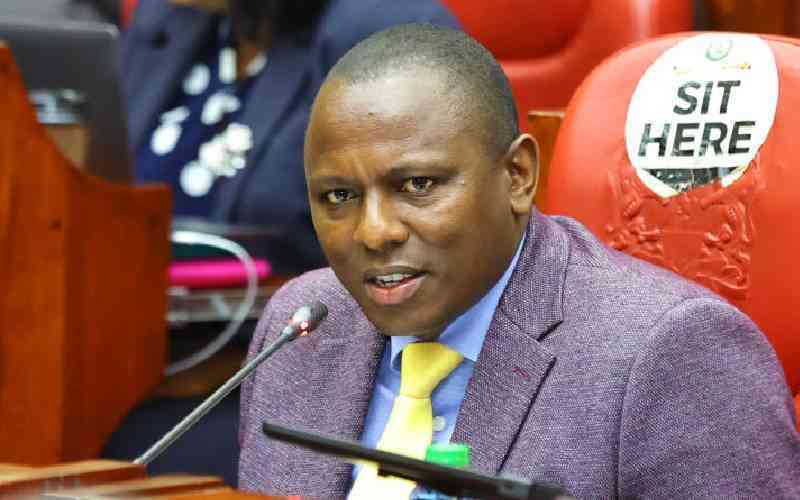New bill seeks to protect sacco savings and curb rogue operators

The government has proposed the establishment of a Deposit Guarantee Fund (DGF), which would allow sacco members to recover their money – up to a certain amount – if an institution collapses.
Kenyans saving through Saccos could soon benefit from insurance protection on their deposits, under new legislative proposals that aim to safeguard members' money and strengthen oversight of sacco operations.
The government has proposed the establishment of a Deposit Guarantee Fund (DGF), which would allow sacco members to recover their money – up to a certain amount – if an institution collapses.
The proposal is contained in the Sacco Societies (Amendment) Bill, 2025, tabled in Parliament by Majority Leader Kimani Ichung’wah. The Bill seeks to cushion millions of sacco members from losing their savings in the event of a sacco failure, in a move similar to the deposit insurance system already in place for commercial banks.
“A member of a sacco society may, upon the sacco society’s licence or authorisation being revoked, lodge a claim with the Deposit Guarantee Fund, in such form and within such time as the Deposit Guarantee Fund may determine,” the Bill reads.
The sacco sector in Kenya currently holds more than Sh1.3 trillion in member deposits. However, unlike bank deposits – which are insured through the Kenya Deposit Insurance Corporation (KDIC) up to a limit of Sh500,000 – sacco savings have remained unprotected, exposing members to potential losses in case of failure.
In addition to protecting member savings, the Bill also seeks to place secondary cooperative societies under tighter regulation by the Sacco Societies Regulatory Authority (Sasra).
These secondary cooperatives, which are made up of primary saccos and perform central liquidity and shared services roles, have operated under looser oversight.
The changes propose that Sasra be given powers to set capital adequacy and liquidity requirements for each of these secondary cooperatives. “
The Authority shall have power to determine capital adequacy standards and requirements for each secondary cooperative society conducting central liquidity and shared services business, and prescribe minimum liquidity requirements and permissible investments,” the Bill states.
The move follows the financial crisis at the Kenya Union of Savings and Credit Cooperatives (Kuscco), which exposed serious gaps in the regulation of liquidity pooling and investment services within the sacco sector.
At the beginning of 2025, a total of 201 out of the 355 cooperatives regulated by Sasra had a combined exposure of Sh14.6 billion to Kuscco. The secondary cooperative had come under liquidity pressure after a forensic audit by PwC uncovered extensive fraud.
The proposed amendments aim to fill this regulatory gap by bringing such central liquidity activities under Sasra’s control.
“The principal object of this Bill is to amend the Sacco Societies Act, Cap. 490B, to provide for the establishment of secondary sacco societies and regulate the conduct of central liquidity and shared services business,” the Bill adds.
To safeguard member funds, secondary cooperatives will now be required to open and maintain a liquidity reserve account for each member sacco, with Sasra providing clear rules on how the pooled money can be managed.
The measures are part of the State’s broader effort to stabilise the sacco sector, protect member savings and avoid a repeat of the Kuscco crisis.
